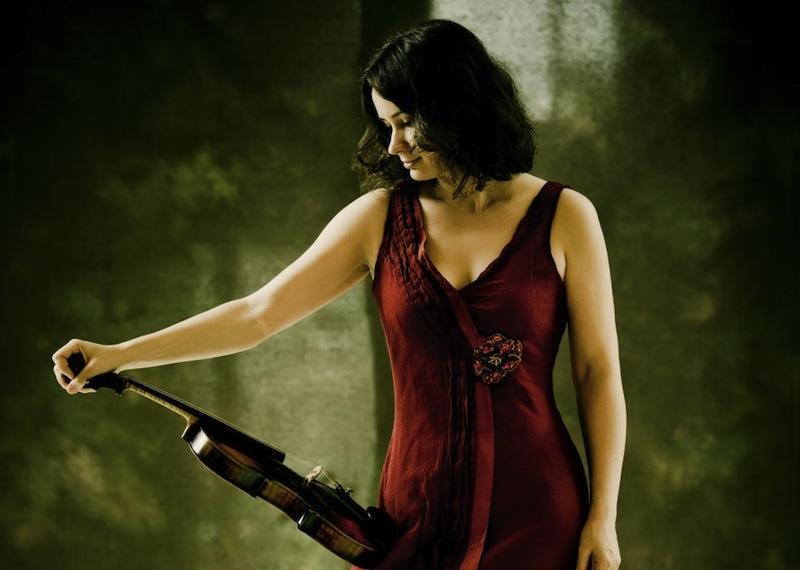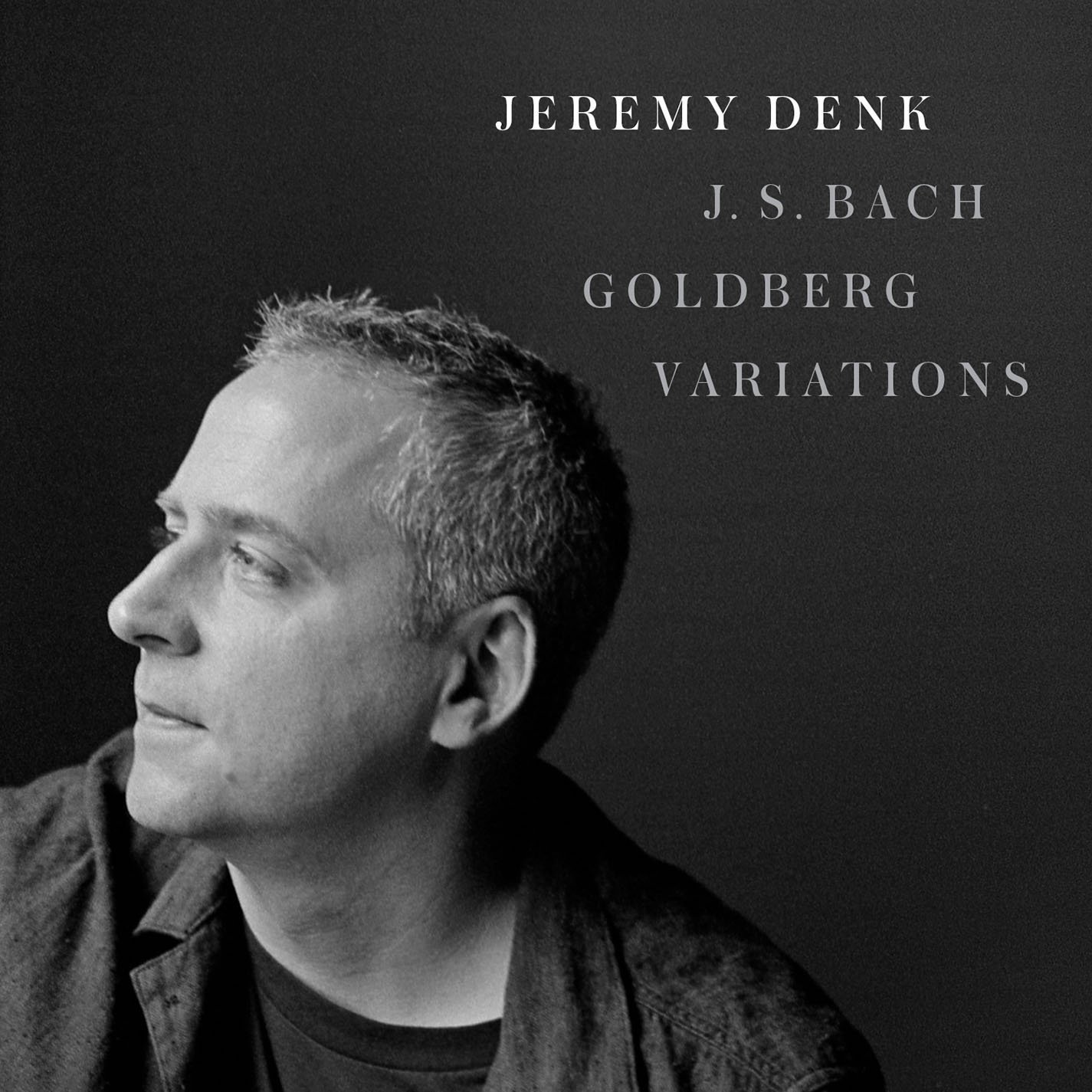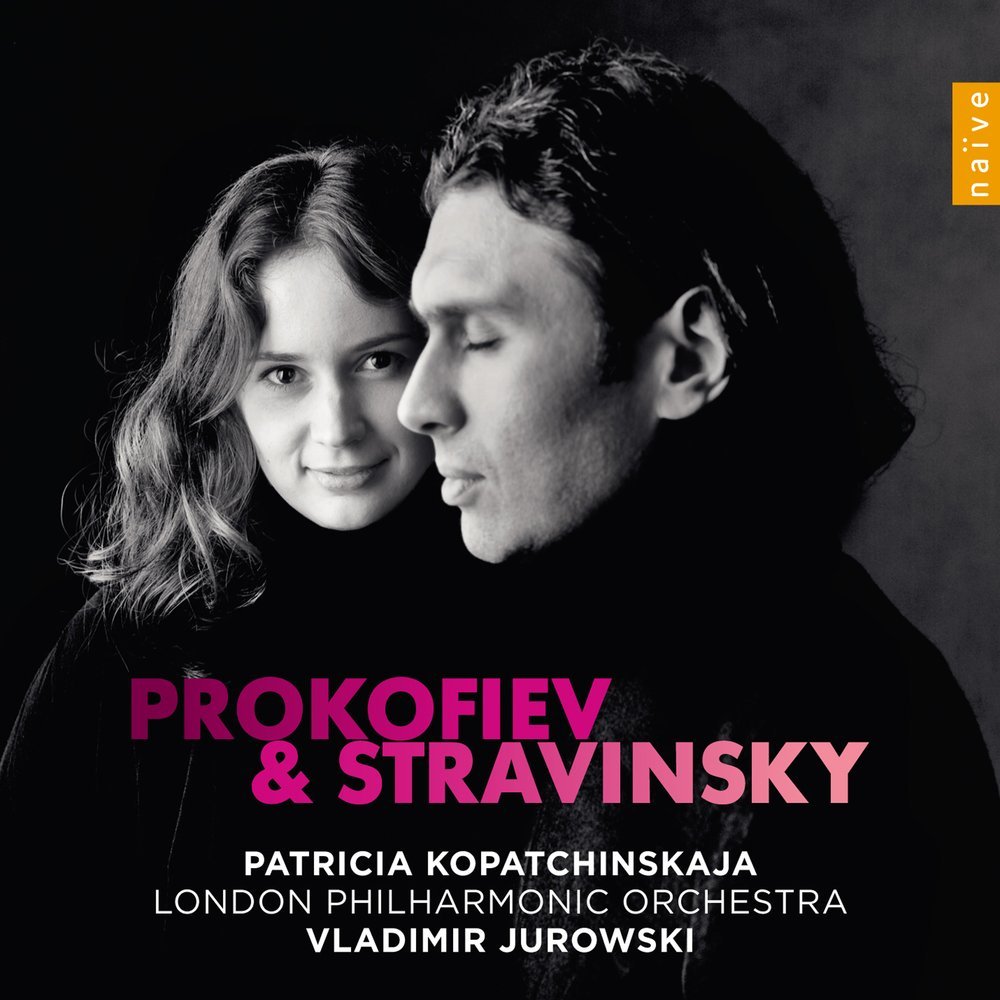Classical CDs Weekly: Bach, Prokofiev, Stravinsky, Refuge in Music | reviews, news & interviews
Classical CDs Weekly: Bach, Prokofiev, Stravinsky, Refuge in Music
Classical CDs Weekly: Bach, Prokofiev, Stravinsky, Refuge in Music
Effervescent baroque keyboard music, sparky violin concertos and a gripping, sober documentary


There's a lovely online article by pianist Jeremy Denk entitled Why I Hate the Goldberg Variations, to which one answer is that they're too popular, “like a trendy bar that (infuriatingly) keeps staying trendy.” Denk's piece describes how exposure to Bach's music saps his resistance, until he is “assimilated into the Goldberg Borg.” His performance as recorded on this Nonesuch disc is pretty special, but even better is the accompanying bonus DVD, provided in lieu of a more conventional sleeve note. There are no visual thrills, apart from sporadic shots of Denk's fingers. All we have is an engaging bloke talking to camera and playing the piano. Yet it's compelling – the most lucid and entertaining introduction to a piece of music imaginable. Bach's technical complexities are unpicked with disarming ease; you're left marvelling at how a sequence of 30 variations on a simple bass theme, all in the same key, never sound boring. Denk's prestidigitation is remarkable; the playing here is consistently dazzling and it's useful to have a visual reminder of just how fiddly the faster variations are to perform.
Denk's reading dances with balletic grace. The dryish piano sound inevitably suggests a Glenn Gould, but you won't find any maddening eccentricities here. I marvelled the unforced elegance of Variation 25, its profundity abruptly shattered by the mad trills of what follows. I loved this performance – it's one to live with which can happily stand alongside classy acounts from Gould, Hewitt and Schiff. The accompanying DVD makes it a must-have.

Look at the track listing and you'll notice that Stravinsky's delicious neo-classical Violin Concerto has an extra movement. Patricia Kopatchinskaja gives us a cadenza, “which Stravinsky didn't write”, performed with the help of the London Philharmonic's leader Pieter Schoeman. It's fantastically done, sounding exactly like idiomatic Stravinsky. But it's a little protracted and would have unbalanced this perfectly-proportioned 20-minute work. Prokofiev waspishly dismissed Stravinsky's neoclassical output as 'Bach with smallpox'. You can only hope he was envious. Kopatchinskaja's outer movements are full of sharp wit and glitter. Vladimir Jurowski's chattering winds are appropriately prominent. The closing minutes of the Finale are spectacular, each gear change accomplished with devilish glee. Stravinsky's two Arias are sensational here – both rapt and full of cool beauty.
The coupling is Prokofiev's brooding Violin Concerto no 2; written just before the composer moved his family to the Soviet Union. Jurowski catches the chilliness, with the Andante Assai's ticking accompaniment suitably unnerving. Prokofiev's riper moments are well served by Kopatchinskaja – the first movement's second subject really soars here. Kopatchinskaja's oblique preface to the sleeve note suggests that the finale's castanets sound more like rattling skeletons to her, and there's a dangerous edginess, a feeling of desperate exhaustion alongside the exuberance. Both concertos receive wonderful performances – a shame that Prokofiev's earlier concerto wasn't included too.

Theresienstadt is nowadays known as Terezín, a crumbling garrison town north of Prague. It became a concentration camp in 1941, housing over 50,000 inmates. Most of its residents were middle class Czech Jews, and the Nazis permitted a range of musical and cultural activities to raise morale, and a contemporary propaganda film presented the camp as a utopian community. This enlightening documentary is concise and sober, feeling much weightier than the 58-minute running time would suggest. The camp's history is related unsensationally; the surprise comes in seeing contemporary footage of the town today. Visiting it clearly unsettles British violinist Daniel Hope; how can normal life continue in such a place?
Short extracts of music composed in Theresienstadt are arresting, and the documentary is followed by an extended concert allowing us to hear the works in full. The performances are excellent, as you'd expect from singers Anne Sofie von Otter and Christian Gerhaher along with pianist Bengt Forsberg. There's a fascinating range of styles on display; Erwin Schulhoff's very cosmopolitan modernism contrasting with lighter items by Robert Dauber and Ilse Weber. Hope makes us appreciate that historical circumstance makes all this music culturally important. He's also perceptive as the reasons why so many of the pieces composed in the camp were relatively brief – “it was as if people had to fight for every note”, alongside the fact that manuscript paper was in short supply. There are riveting interviews with two survivors - guitarist Coco Schumann and the 108-year-old pianist Alice Herz-Sommer, still lucid and now living in London. For her, “living in such a difficult time enriches one”, and seeing her response as Hope plays a Bach saraband to her is deeply moving. Schumann, a sprightly 88-year-old, is a joy – still able to strum a guitar, and musing that he's “the sort of person who makes the best of things... I rejoice that I got out!”
Explore topics
Share this article
The future of Arts Journalism
You can stop theartsdesk.com closing!
We urgently need financing to survive. Our fundraising drive has thus far raised £49,000 but we need to reach £100,000 or we will be forced to close. Please contribute here: https://gofund.me/c3f6033d
And if you can forward this information to anyone who might assist, we’d be grateful.

Subscribe to theartsdesk.com
Thank you for continuing to read our work on theartsdesk.com. For unlimited access to every article in its entirety, including our archive of more than 15,000 pieces, we're asking for £5 per month or £40 per year. We feel it's a very good deal, and hope you do too.
To take a subscription now simply click here.
And if you're looking for that extra gift for a friend or family member, why not treat them to a theartsdesk.com gift subscription?
more Classical music
 Bizet in 150th anniversary year: rich and rare French offerings from Palazzetto Bru Zane
Specialists in French romantic music unveil a treasure trove both live and on disc
Bizet in 150th anniversary year: rich and rare French offerings from Palazzetto Bru Zane
Specialists in French romantic music unveil a treasure trove both live and on disc
 Scottish Chamber Orchestra, Ibragimova, Queen’s Hall, Edinburgh review - rarities, novelties and drumrolls
A pity the SCO didn't pick a better showcase for a shining guest artist
Scottish Chamber Orchestra, Ibragimova, Queen’s Hall, Edinburgh review - rarities, novelties and drumrolls
A pity the SCO didn't pick a better showcase for a shining guest artist
 Kilsby, Parkes, Sinfonia of London, Wilson, Barbican review - string things zing and sing in expert hands
British masterpieces for strings plus other-worldly tenor and horn - and a muscular rarity
Kilsby, Parkes, Sinfonia of London, Wilson, Barbican review - string things zing and sing in expert hands
British masterpieces for strings plus other-worldly tenor and horn - and a muscular rarity
 From Historical to Hip-Hop, Classically Black Music Festival, Kings Place review - a cluster of impressive stars for the future
From quasi-Mozartian elegance to the gritty humour of a kitchen inspection
From Historical to Hip-Hop, Classically Black Music Festival, Kings Place review - a cluster of impressive stars for the future
From quasi-Mozartian elegance to the gritty humour of a kitchen inspection
 Shibe, LSO, Adès, Barbican review - gaudy and glorious new music alongside serene Sibelius
Adès’s passion makes persuasive case for the music he loves, both new and old
Shibe, LSO, Adès, Barbican review - gaudy and glorious new music alongside serene Sibelius
Adès’s passion makes persuasive case for the music he loves, both new and old
 Anja Mittermüller, Richard Fu, Wigmore Hall review - a glorious hall debut
The Austrian mezzo shines - at the age of 22
Anja Mittermüller, Richard Fu, Wigmore Hall review - a glorious hall debut
The Austrian mezzo shines - at the age of 22
 First Person: clarinettist Oliver Pashley on the new horizons of The Hermes Experiment's latest album
Compositions by members of this unusual quartet feature for the first time
First Person: clarinettist Oliver Pashley on the new horizons of The Hermes Experiment's latest album
Compositions by members of this unusual quartet feature for the first time
 Gesualdo Passione, Les Arts Florissants, Amala Dior Company, Barbican review - inspired collaboration excavates the music's humanity
At times it was like watching an anarchic religious procession
Gesualdo Passione, Les Arts Florissants, Amala Dior Company, Barbican review - inspired collaboration excavates the music's humanity
At times it was like watching an anarchic religious procession
 Classical CDs: Camels, concrete and cabaret
An influential American composer's 90th birthday box, plus British piano concertos and a father-and-son duo
Classical CDs: Camels, concrete and cabaret
An influential American composer's 90th birthday box, plus British piano concertos and a father-and-son duo
 Cockerham, Manchester Camerata, Sheen, Martin Harris Centre, Manchester review - re-enacting the dawn of modernism
Two UK premieres added to three miniatures from a seminal event of January 1914
Cockerham, Manchester Camerata, Sheen, Martin Harris Centre, Manchester review - re-enacting the dawn of modernism
Two UK premieres added to three miniatures from a seminal event of January 1914
 Kempf, Brno Philharmonic, Davies, Bridgewater Hall, Manchester review - European tradition meets American jazz
Bouncing Czechs enjoy their Gershwin and Brubeck alongside Janáček and Dvořák
Kempf, Brno Philharmonic, Davies, Bridgewater Hall, Manchester review - European tradition meets American jazz
Bouncing Czechs enjoy their Gershwin and Brubeck alongside Janáček and Dvořák
 Solomon, OAE, Butt, QEH review - daft Biblical whitewashing with great choruses
Even a top soprano and mezzo can’t make this Handel paean wholly convincing
Solomon, OAE, Butt, QEH review - daft Biblical whitewashing with great choruses
Even a top soprano and mezzo can’t make this Handel paean wholly convincing

Add comment